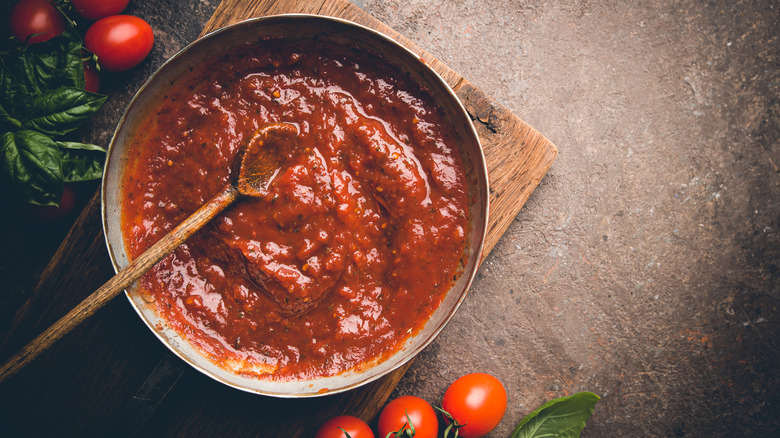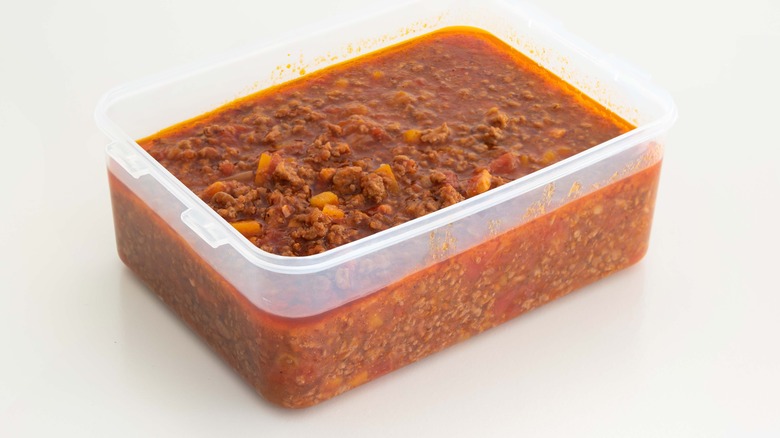Is It Safe To Eat 2-Year-Old Frozen Pasta Sauce
As a general rule of thumb in any home kitchen, for any food going into any mouth: Do not store anything in your freezer for two years. If something gets lodged in a corner and you forget about it, that's understandable, but intentionally freezing something for two years down the road seems a bit excessive.
Now, rightfully, the quality of 2-year-old frozen pasta sauce seems dubious; however, when stored properly, it can actually be safe to eat. Technically, safe frozen storage for pasta sauce depends on certain timing factors related to storage methods as well as to ingredients, but freezing will preserve any sauce for over six months and potentially beyond, per Still Tasty.
The correct way to store homemade pasta sauce is to keep it sealed in an airtight container. In the refrigerator, doing so will keep the sauce fresh for three to four days. In the freezer, your sealed sauce will last for several more months. Speaking with the staff at Martha Stewart, Nicole Birmingham, senior vice president of research and development at Rao's Homemade, says homemade pasta sauce that's frozen in an airtight container will retain its best quality for up to six months.
How to tell if your sauce has gone off
If stored and frozen properly, your pasta sauce should last you quite a long time and likely be safe to eat beyond six months, per the Food Network; but there are still some signs to look for before using your long-frozen sauce with your freshly cooked pasta.
Again, the signs to look for will technically differ according to the ingredients used in your sauce. For example, Christopher Arturo explained to Martha Stewart that homemade alfredo sauce won't do well in the freezer for long due to its dairy content. In general, though, if you see or smell something off after thawing your sauce, it's time to abandon it.
Sauces that have gone bad will have a distinctly foul odor (which is notoriously difficult to get rid of) and the sauce may be growing mold or be off-colored, per Eat By Date. Also if your sauce seems slimy or sticky after defrosting or you can't remember for the life of you when exactly you put the sauce in the freezer (always try and label your bags and/or containers in the freezer), then it is safest to just leave the sauce and perhaps whip up something a bit more recent.
So if you've mastered some amazing pasta sauce recipes and are afraid another pandemic will hit before you can get your friends and family to try it, you can now rest easy — knowing that freezing your (nondairy) sauce should preserve your pasta sauce for several months; though if past six months, maybe not taste of the same quality as you remembered.

